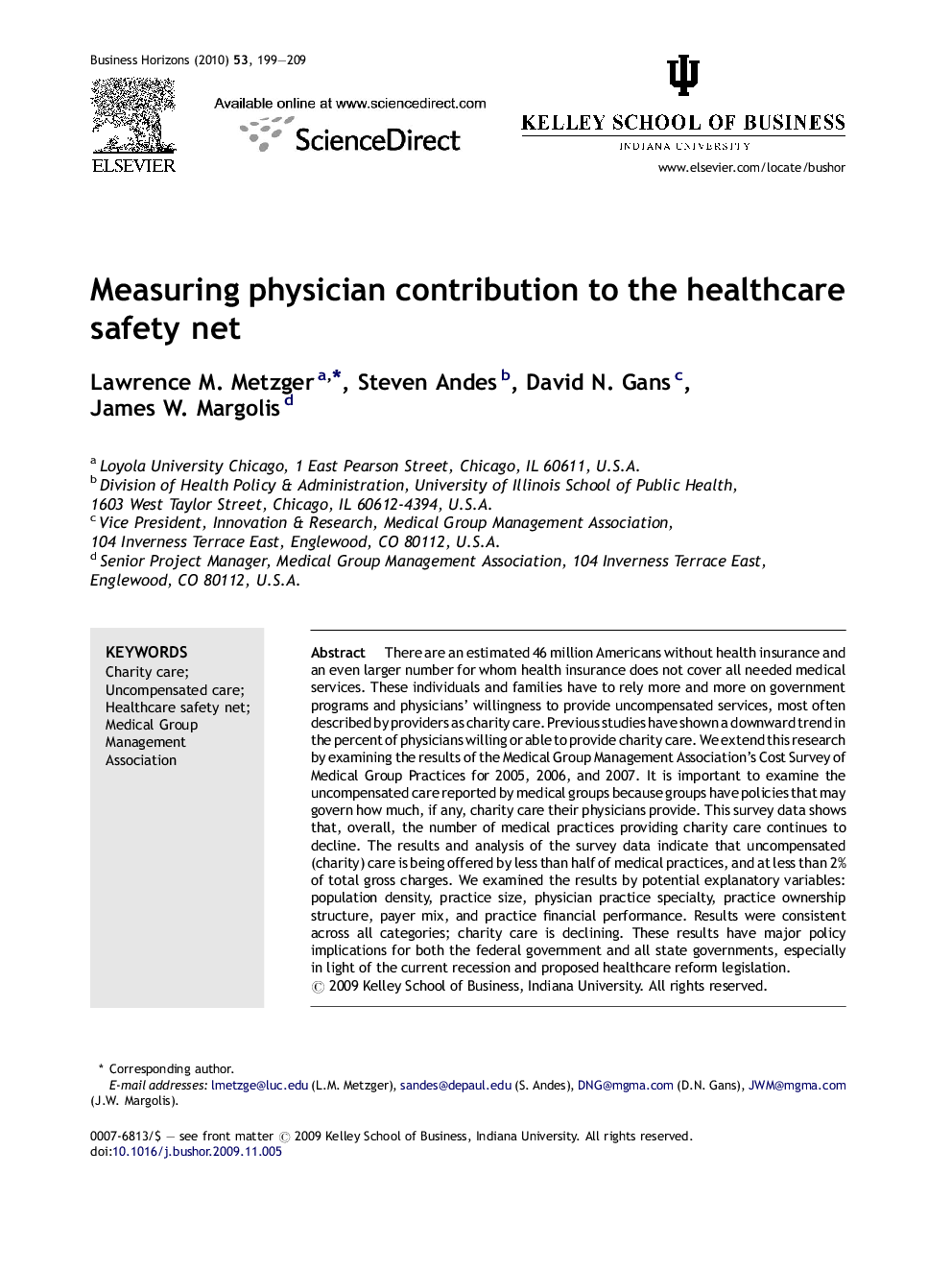| Article ID | Journal | Published Year | Pages | File Type |
|---|---|---|---|---|
| 1014332 | Business Horizons | 2010 | 11 Pages |
There are an estimated 46 million Americans without health insurance and an even larger number for whom health insurance does not cover all needed medical services. These individuals and families have to rely more and more on government programs and physicians’ willingness to provide uncompensated services, most often described by providers as charity care. Previous studies have shown a downward trend in the percent of physicians willing or able to provide charity care. We extend this research by examining the results of the Medical Group Management Association's Cost Survey of Medical Group Practices for 2005, 2006, and 2007. It is important to examine the uncompensated care reported by medical groups because groups have policies that may govern how much, if any, charity care their physicians provide. This survey data shows that, overall, the number of medical practices providing charity care continues to decline. The results and analysis of the survey data indicate that uncompensated (charity) care is being offered by less than half of medical practices, and at less than 2% of total gross charges. We examined the results by potential explanatory variables: population density, practice size, physician practice specialty, practice ownership structure, payer mix, and practice financial performance. Results were consistent across all categories; charity care is declining. These results have major policy implications for both the federal government and all state governments, especially in light of the current recession and proposed healthcare reform legislation.
